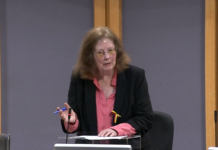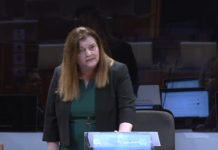
Action for Children key workers warn families at rock bottom, fearing worse to come in childhood crisis
- Key workers call on Prime Minister to ‘come live and breathe what our families are going through’, warning children of all ages regressing in speech, behaviour, education and social skills.
- Ahead of the Budget, Action for Children calls for Universal Credit uplift to be made permanent as its new analysis shows anything less will leave struggling families without support when they need it most.
After almost a year of unprecedented restrictions on family life, a new investigation by Action for Children reveals the UK’s most vulnerable children and parents are at rock bottom – as the charity pleads with the Prime Minister to tackle the country’s childhood crisis.
Action for Children carried out interviews with key workers representing 155 (38 in Wales) of its frontline services¹ across the UK, children’s centres, services for disabled children and young carers. The findings show huge concern about the mental health, finances and safeguarding of families they support, as well as fears for their future.
MENTAL HEALTH
All staff were worried about the toll the crisis is having on parents’ mental health², describing them as “at their wits’ end”, “exhausted”, and “unable to cope with a simmering pot of emotion and frustrations”. As well as being cut off from friends and family, many were reported to be struggling to cope with job losses, relationship breakdowns, home schooling and fears of catching the virus.
One described working with a parent who was suicidal: “She told me ‘I can’t cope, I can’t be here anymore’ – she’s a single parent with an older child with autism and additional needs. She can’t access school for long at the moment … and is so alone… it’s just so sad.” Another reported new mums left isolated without support networks tell her “they wish they hadn’t had their babies [this year].”
Anxiety was reported as one of the main issues facing children and young people³ – with workers describing how many told them they are anxious to go outside, of bringing the virus home to their families, and of returning to school after being isolated from friends.
Another described an extreme case of a disabled child under 10 who talked about suicide because of the pressure: “[They] didn’t want to live. We’ve arranged a long-term plan but what could have happened to them? This was a parent we never met, they just called us.”
FAMILY FINANCES
Nearly all (93%) of the charity’s frontline staff said families’ finances had deteriorated since the first lockdown4 and a similar number (90%) reported parents were worried about having enough money to stay afloat both now and in the coming months5.
Families were reported being most worried about not being able to afford food (93%), followed by heating (66%), then household bills (61%). These were followed by technology (56%) and clothes (41%)6.
More than half (58%) said they did not think Government was providing adequate financial support to low-income families7.
One key worker said: “So many more families are out of work and with the children at home there’s the increase in costs. Families can’t afford warm clothes for children, we’ve spent emergency funds on beds for children sleeping on the floor [and] these are not the most vulnerable in society, they are newly in need because of the pandemic.” Another said: “Families who were buying extra things in their weekly shop to contribute to a foodbank are now relying on foodbanks themselves.”
SAFEGUARDING CONCERNS
With many schools and services still closed – and lockdown restrictions causing a rise in domestic abuse8 – many workers were concerned about the safety of at-risk children, hidden from professionals such as teachers and doctors who would normally see them.
Three-quarters (76%) of workers fear there are children who are not being reached by external agencies because of the pandemic9. And more than half of workers (56%) said they have seen an increase in vulnerable children needing support10.
One said: “Safeguarding issues go under the radar… we don’t see the signs and symptoms when we work virtually… you miss the water cooler moments, those observations.” Another described the difficulty in proving neglect of a child without observations: “The parents will just say ‘yes, everything is ok’. It takes a village to raise a child, and the village is missing.”
LONG TERM IMPACT
The overwhelming majority (80%)11 of those surveyed considered childhood to be in crisis and that the pandemic will have a negative impact on children unless there was urgent investment in children’s services and support back into education. Many have witnessed children of all ages regress in speech, behaviour, education and social skills, with one worker echoing many: “We’ll be in a desperate situation and it’ll take years to catch up – they’ll be a lost generation.”
One called on the Prime Minister to “come live and breathe what our families are going through” and another for him to “take 24 hours out of your life and live how these parents have lived for the last year. In these tiny flats with no food and no gardens and five children.”
NEW UNIVERSAL CREDIT ANALYSIS
With a decision on whether to extend the £20-a-week Universal Credit uplift beyond April expected to be announced in the March Budget, a separate analysis by the charity has shown that unless the uplift is made permanent, struggling families claiming for the first time will miss out on crucial financial help at a time when the furlough scheme will have ended, and high unemployment is expected. If the uplift is extended by three months, at least 2.5 million families with children currently on Universal Credit or Working Tax Credits would miss out on a combined total of £1.95 billion across the 2021-22 financial year (equal to £780 per family). The same number of families would miss out on £1.3 billion across the same period if the uplift is extended by six months (£520 per family)11.
Action for Children’s national director for Wales, Brigitte Gater, said: “It’s been nearly a year since the first lockdown began – 12 long months of more families facing hardship, struggling to cope and of childhoods gone.
“Sadly, our frontline staff tell us children and parents are at rock bottom going without food, heating, clothes and essentials – and the pandemic is making things even worse. With unemployment rising and fears for the future when the furlough scheme ends, more families are facing financial hardship and vulnerable children are paying the price.
“There is no faster way to push up poverty than by taking over £1,000 a year out of the pockets of the poorest families in the country. Many of these families are working families doing their best to hold their heads above water after a nightmare year that has seen hours cut and wage packets slashed. The Prime Minister must make the uplift to Universal Credit permanent if families are to stand a fighting chance of recovery.
With Senedd elections also due in May, Action for Children is part of the End Child Poverty Network Cymru that has drawn up a manifesto to eradicate child poverty. The manifesto includes a call for the next Welsh Government to establish a Welsh Benefit System, as a single point of access for assistance, to help address some of the shortcomings with the approach taken in Wales to financially support low-income families.
Brigitte Gater added: “It is incumbent on the UK and Welsh Governments to ensure we avoid the real prospect of a lost generation of Welsh children due to this pandemic. Covid-19 has deepened the inequalities too many of our families face and we believe that preventing and tackling child poverty should be key priorities for the next Welsh Government and for all political parties in the next Senedd term.”
CASE STUDY
Jane (47) and Deion (42) Griffiths and their young family from Connah’s Quay in North Wales have found the pandemic and its lockdowns extremely difficult to navigate with Deion’s work situation being very uncertain. The third lockdown has been particularly hard with the kids home and not being able to go out much because of the weather. Home schooling has been tough, and it has just been a struggle getting through each day though Deion is beginning to pick up more work.
Their eldest child Ellie (12), has autism, ADHD and personality disorder while their eldest son, Lewis (10), is registered deaf and blind and has cerebral palsy. Jamie (8), also has autism while their youngest child, Aneira is five years old. The family access Action for Children services through their Flintshire Disability project.
Jane said: “Covid-19 has really affected us. We’ve had to rely on Universal Credit and it’s been tough trying to feed everyone and keep the house warm. Deion has started to pick up some work now thankfully after losing his job before Christmas. It’s been such a terrible year for the kids and due to Deion’s work situation, we’ve just been trying to make it through to the next Universal Credit payment each month.
“Action for Children have been fantastic helping with food vouchers, toys, and a bed as well as a weighted blanket most recently, from the emergency fund, to help Ellie’s anxiety and we’ve been really grateful for that support. Our support worker, Hayley, is always there to for us and the kids to talk to which is just important as the financial help. She’s been brilliant at keeping in touch and regularly puts on quizzes and games for the whole family on Zoom. She’s also sent sweet packs and all sorts so it’s good to know they are always there. I’m really not sure how we would’ve managed without them.’
To support Action for Children’s End Childhood Crisis campaign and help its key workers deliver life-changing support for children and families go to actionforchildren.org.uk/endcrisis
Help keep news FREE for our readers
Supporting your local community newspaper/online news outlet is crucial now more than ever. If you believe in independent journalism, then consider making a valuable contribution by making a one-time or monthly donation. We operate in rural areas where providing unbiased news can be challenging. Read More About Supporting The West Wales Chronicle






















